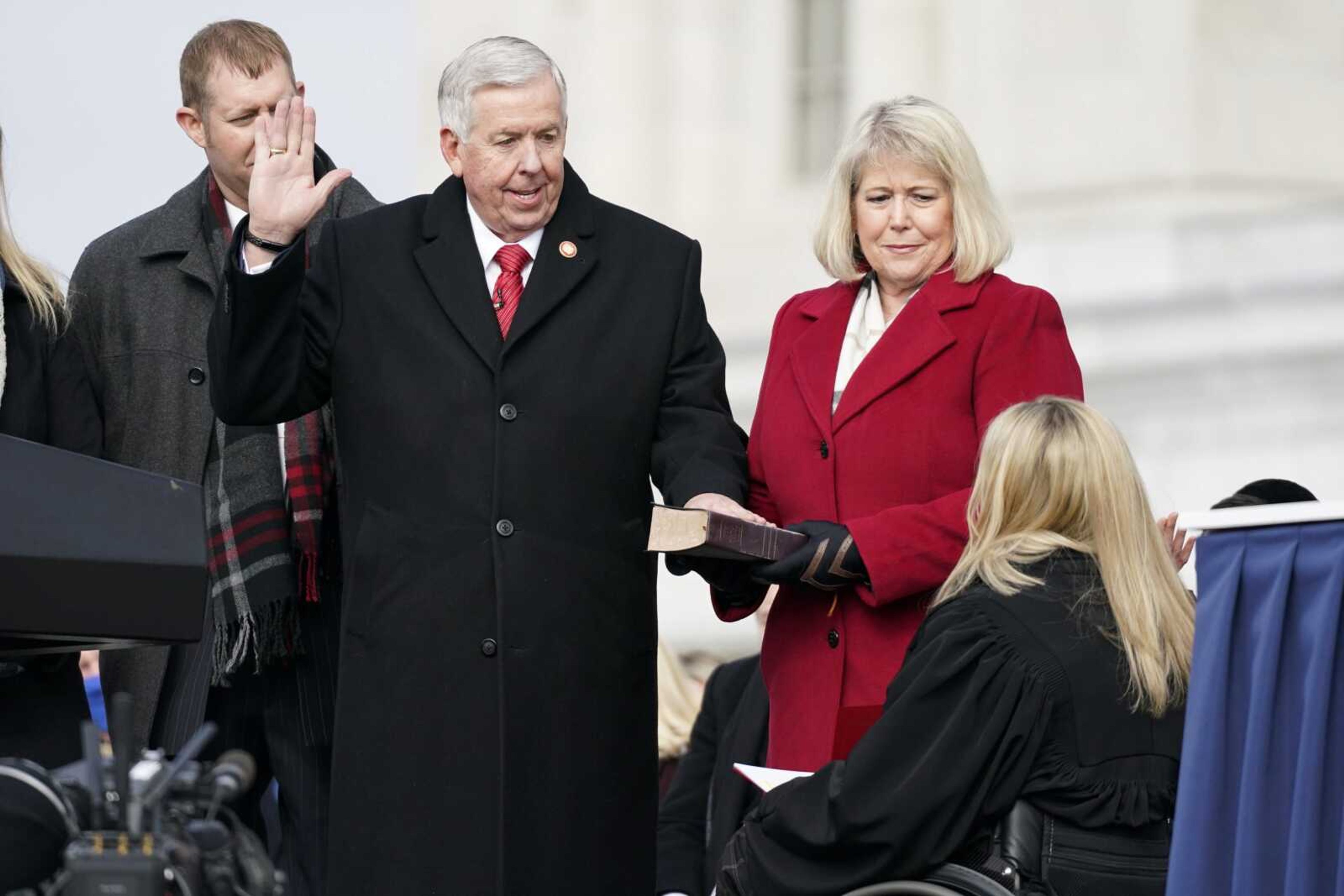With governor's support: Legislators may address internet tax proposals
When the General Assembly reconvenes Jan. 25 after a one-week COVID-19 "pause" announced late in the day Thursday due to continuing pandemic concerns in Jefferson City, there is new hope in Southeast Missouri that a Wayfair sales tax measure will be approved this session...
When the General Assembly reconvenes Jan. 25 after a one-week COVID-19 "pause" announced late in the day Thursday due to continuing pandemic concerns in Jefferson City, there is new hope in Southeast Missouri that a Wayfair sales tax measure will be approved this session.
Wayfair is the umbrella term given to a series of bills introduced at the state capital permitting a use tax to be placed on any internet purchase brought into or shipped into Missouri. The term comes from a lawsuit brought against the Wayfair company.
Following inauguration remarks Monday, Gov. Mike Parson told reporters at the Capitol he continues to want a statewide Wayfair bill to be passed this session by the Republican-led legislature.
"Wayfair is a big one for us because a tax on online sales is awfully important to bricks-and-mortar stores and to all small business," said John Mehner, president and CEO of the Cape Girardeau Area Chamber of Commerce.
Mehner noted only Missouri and Florida do not impose a statewide use tax on internet sales.
"When you have comparatively low real estate taxes, as we do in Missouri compared to other states, we are very reliant on sales tax," he added.
"We've seen the pandemic drive sales to the internet at a greater degree than was anticipated, and the reality is more and more people are shopping online," said Mehner, leader of the Cape Chamber since 1993.
"I was very pleased to hear the governor renew his support (for Wayfair)," said Rep. Wayne Wallingford of Cape Girardeau (R-147), recently named chairman of the Ways and Means committee in the Missouri House.
Ways and Means is a panel whose role is to deal directly with state tax policy.
"I pushed for Wayfair several years when I served in the (Missouri) Senate but had no luck," said Wallingford, who followed medical advice and did not attend Parson's inaugural as the 74-year old lawmaker continues his recovery from a Nov. 2 kidney transplant.
Wallingford indicated lawmakers need to do a better job communicating what Wayfair is and what it is not.
"It's not a tax increase," the veteran legislator said.
"Right now, if you buy something over the internet, you're supposed to put that purchase on a state income tax form, but most people don't know they're supposed to do that," Wallingford added.
"I'm for a (statewide) internet sales tax," said Rep. Rick Francis of Perryville (R-145), "because mom-and-pop businesses don't have a level playing field, and it's unfair."
Francis said he is considering filing his own Wayfair bill but is waiting to see if legislative colleagues come up with something he can support.
"I look at the (state) budget, and we need revenue," said Francis, a farmer and former educator, adding he would like to see at least some Wayfair proceeds earmarked for school transportation expenses -- noting the high cost to districts for running school buses, especially in rural areas.
"Scott County passed a use tax when I was part of the county commission," said freshman Rep. Jamie Burger of Benton (R-148). "I think we're taxed out, but I want to be fair, especially to bricks-and-mortar businesses who need to be on the same level as Amazon."
Burger emphasized the need to support local business.
"The local folks are the ones who purchase ads in the local paper, who support high school sports, who buy Girl Scout cookies," Burger explained.
Sen. Holly Rehder of Scott City (R-27) said she'll take a "wait and see" attitude to Wayfair legislation.
"I'm open to whatever comes before me, and I like to hear all the pros and cons," said the legislator who moved to the upper chamber last week after eight years in the Missouri House.
"In the House, I voted against them all because the devil is in the details," Rehder said, calling "incredibly different" the internet sales legislation she's seen proposed to-date.
Rep. Barry Hovis of Whitewater (R-146) is similarly cautious.
Hovis's district covers the city of Jackson, whose voters have turned down use tax initiatives three times -- in 2014, 2016 and 2019.
"It seems hypocritical for me to support this in its current form given the expressed opinion of my constituents at the polls," Hovis said.
Hovis said he might be able to back the Show Me State's participation in a multistate compact to collect user tax from internet sales, in part because Missouri wouldn't have to build a new infrastructure to collect the revenue.
Local levies
Cape Girardeau County has a 1% use tax on the books, but the levy is devoted entirely to paying off the bonds needed for the new county courthouse in Jackson.
Bollinger and Perry counties also have a use tax, as do the municipalities of Chaffee, Advance, Dexter, Perryville and Ste. Genevieve.
Like Jackson, voters in Cape Girardeau have not supported a use tax, rejecting an initiative as recently as 2016.
Connect with the Southeast Missourian Newsroom:
For corrections to this story or other insights for the editor, click here. To submit a letter to the editor, click here. To learn about the Southeast Missourian’s AI Policy, click here.











